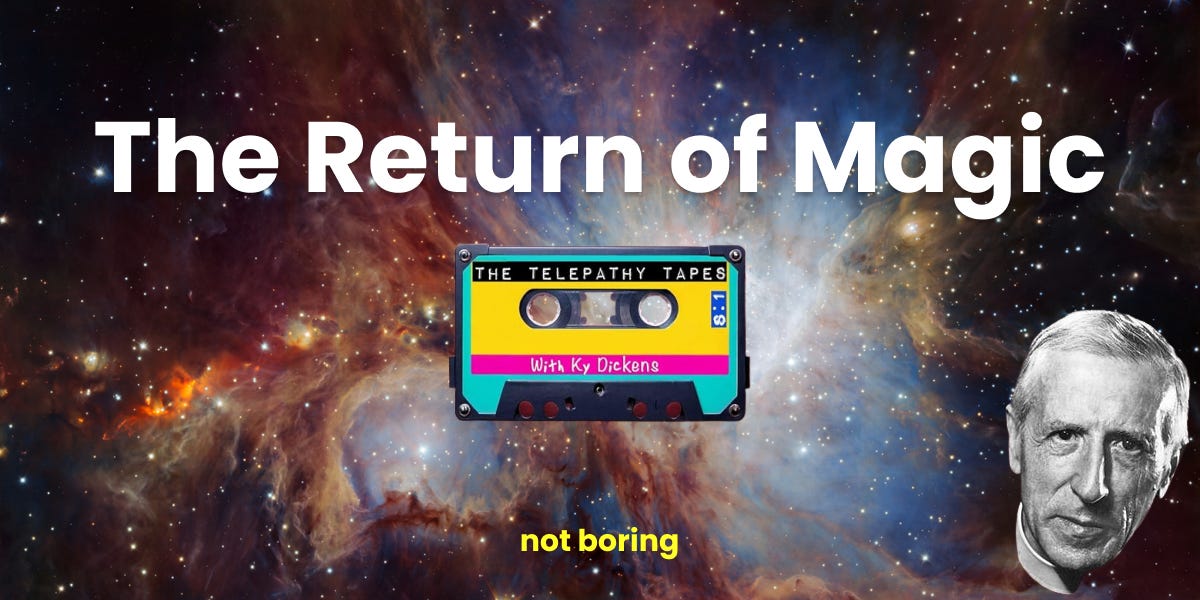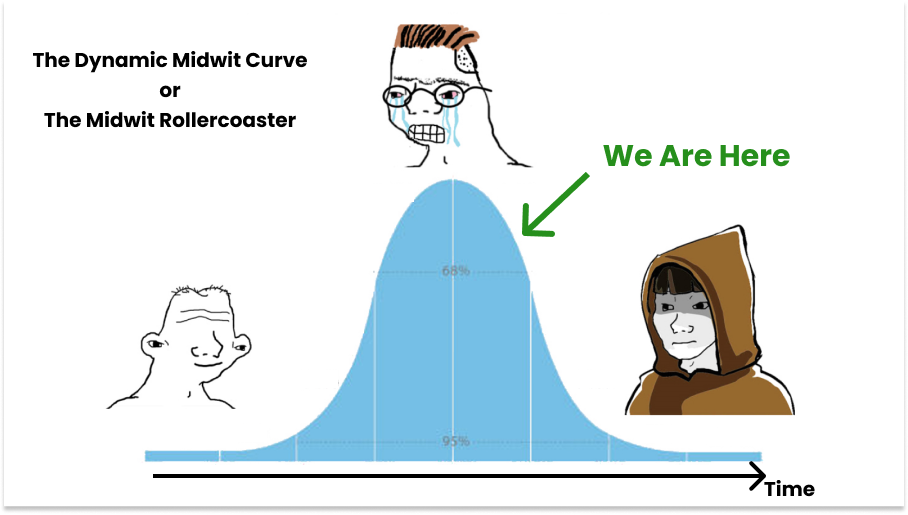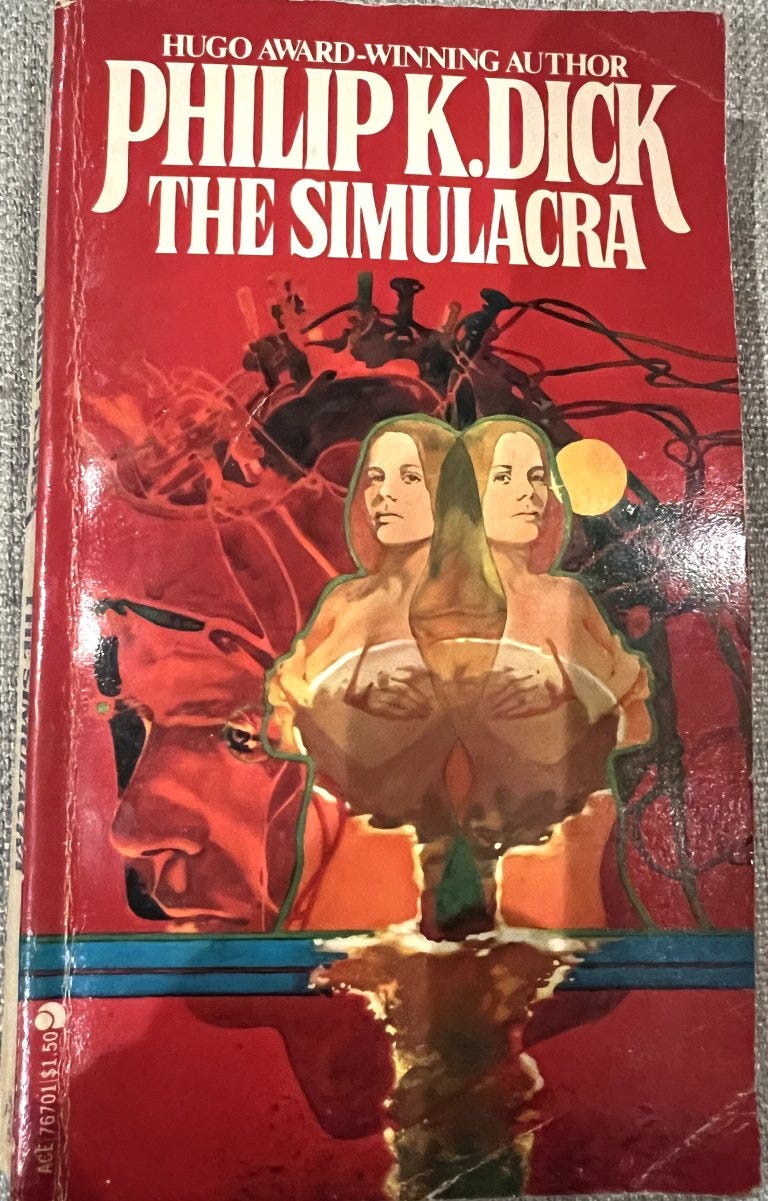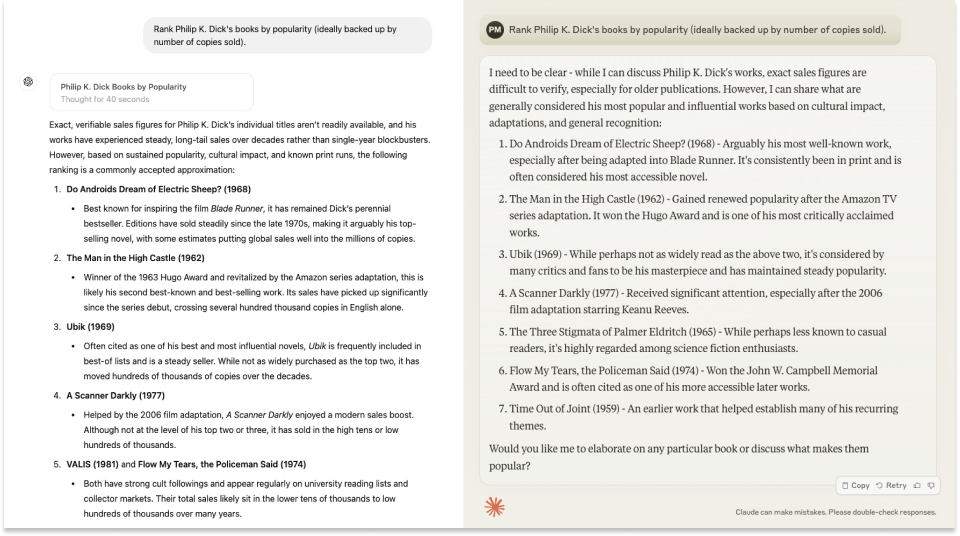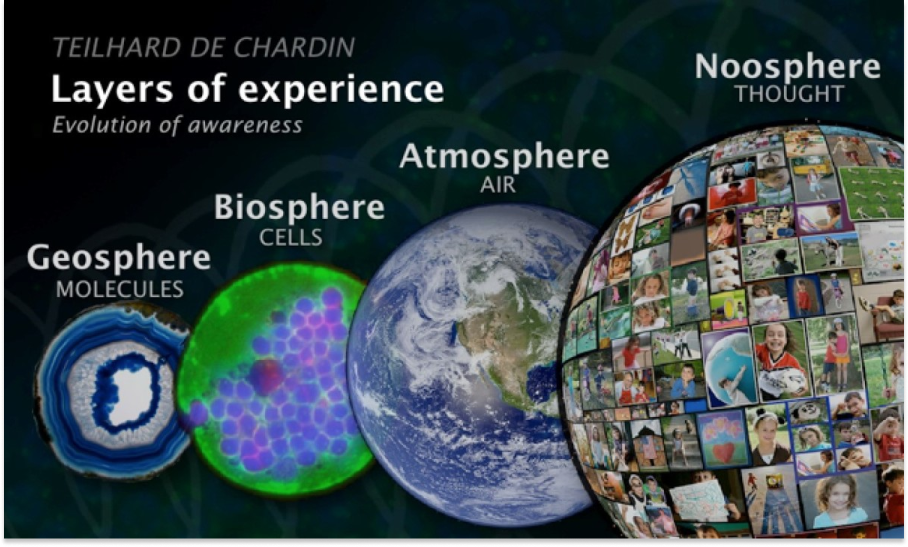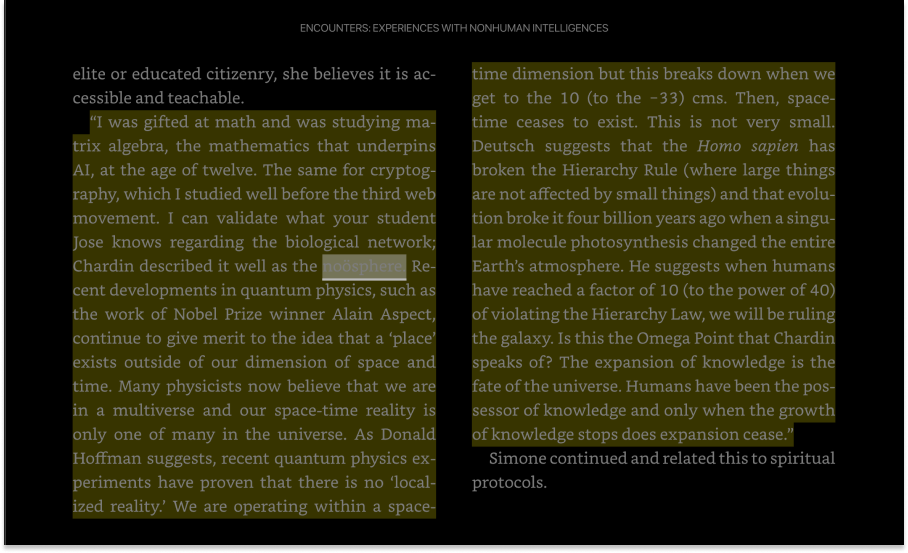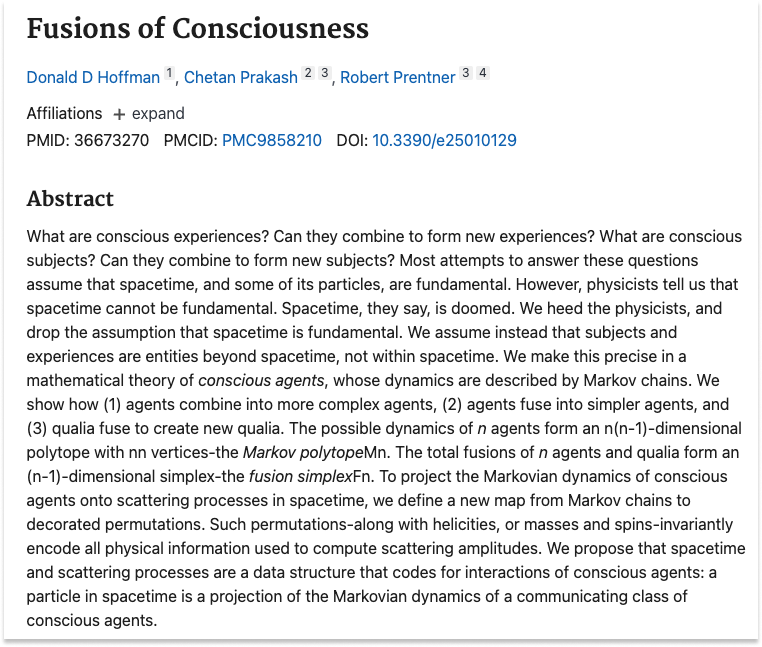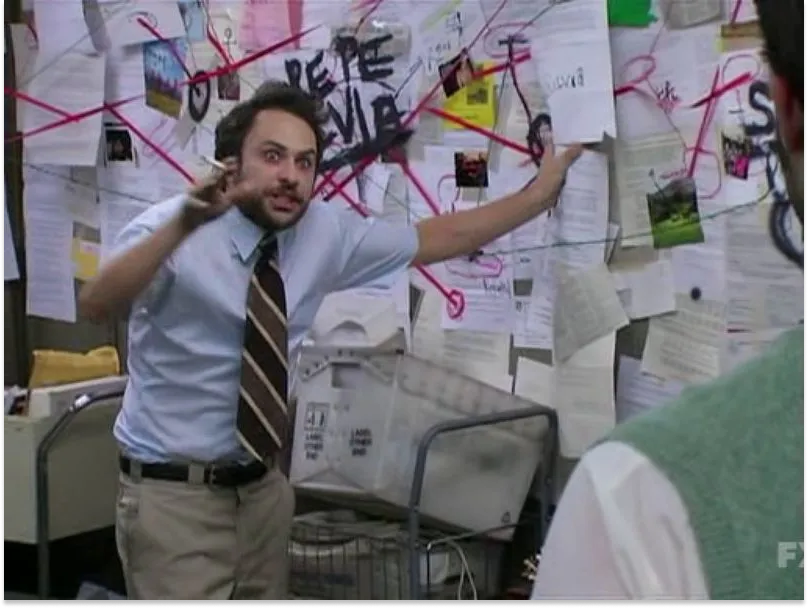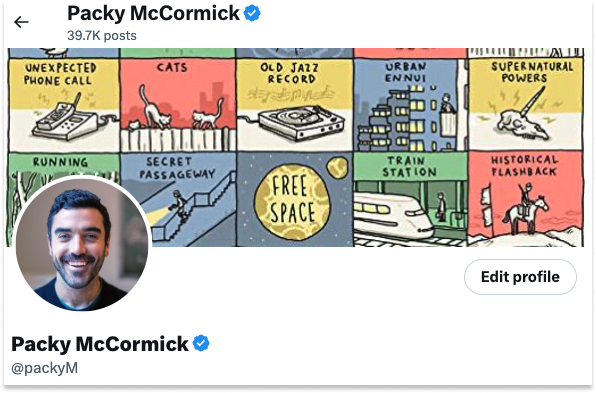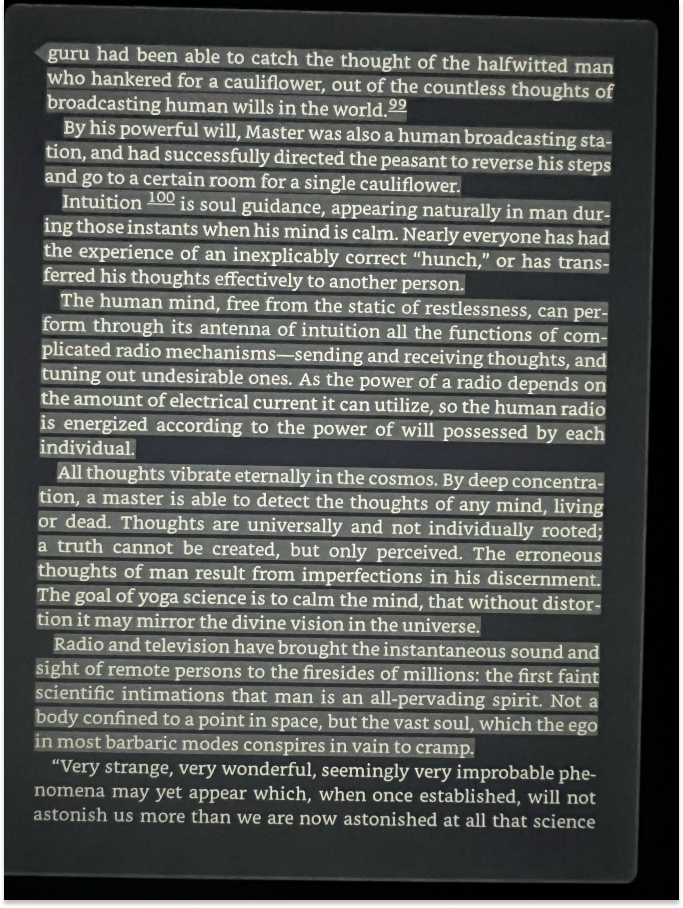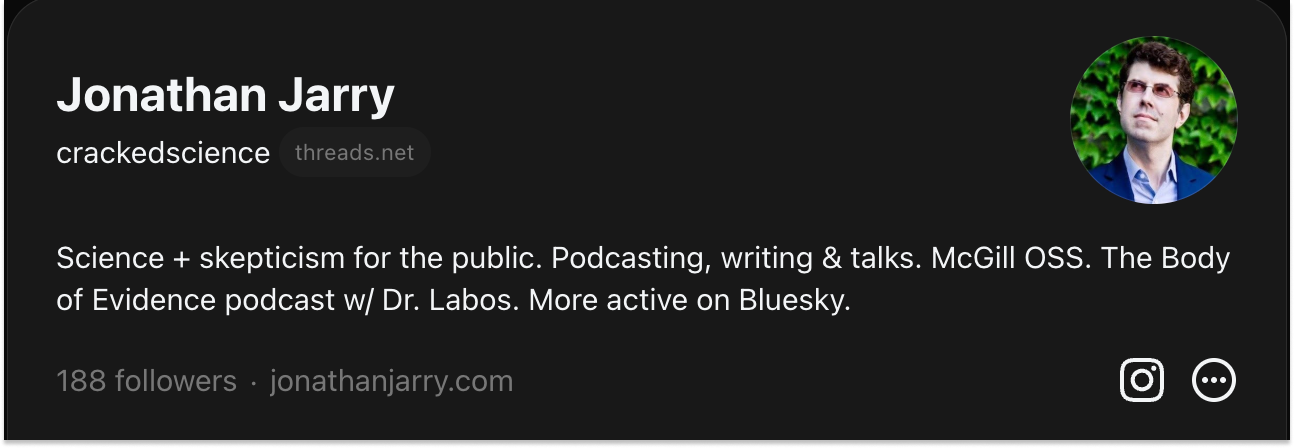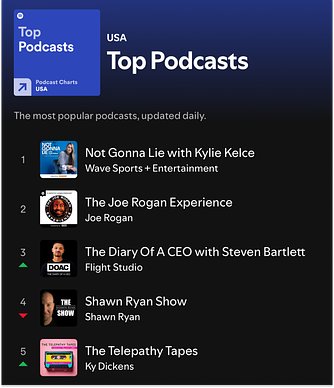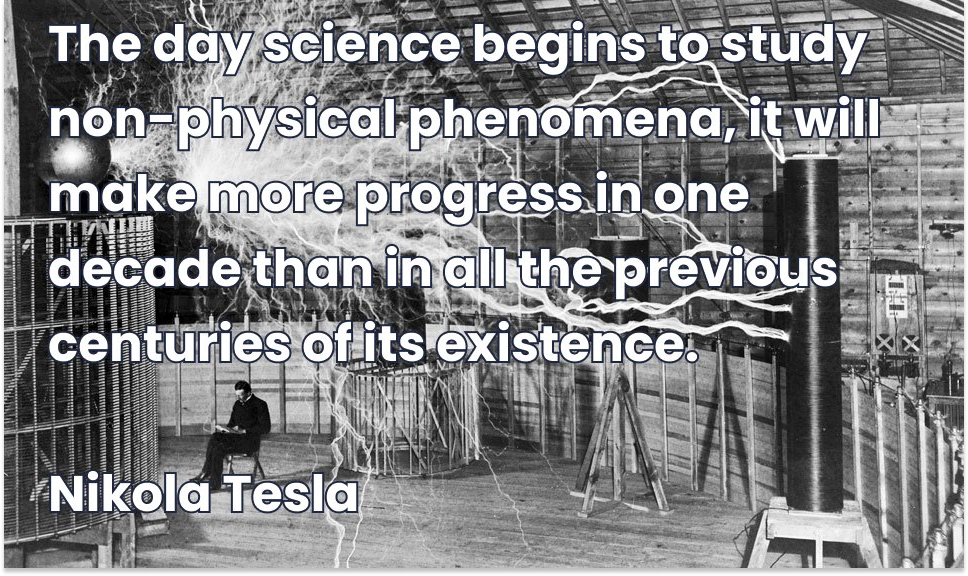Not Boring by Packy McCormick - The Return of Magic
Welcome to the 973 newly Not Boring people who have joined us since our last essay! If you haven’t subscribed, join 236,618 smart, curious folks by subscribing here: Today’s Not Boring is brought to you by… Baseten Baseten's model performance engineers have built the world's fastest inference engine for Whisper, the best open-source audio transcription (speech-to-text) AI model:
This is the fastest, most accurate, least expensive Whisper inference on the market, counting custom hardware providers. ML engineering teams at leading AI-native companies like Bland AI and Patreon trust Baseten for mission-critical Whisper inference thanks to secure and HIPAA-compliant dedicated deployments, best-in-class reliability and observability, and optional self-hosted deployments to customer VPCs. Get the world's best Whisper inference with Baseten. Hi friends 👋, Happy Thursday! This is the last Not Boring piece of 2024. That’s hard to believe. Last year, around this time, I wrote a piece called Momentum, Consolidation, and Breakout about the fact that I felt kind of stuck in 2023 and was hoping to break out of it in 2024. I’m happy to report that I have. This year has been one of the most fun – personally and professionally – of my life. It’s also felt a little… magical. So for the last piece of the year, I want to tell you about my awakening to magic and my sense that the world is being re-enchanted. It’s a little wispy – I’m trying to make sense of a bunch of things – and not meant to be the final word. Instead, I hope it gives you some things to think about and explore over the holidays, and gives me a starting point for some deeper and more coherent exploration in 2025. Let’s get to it. The Return of MagicOn December 1st, I started listening to The Telepathy Tapes.
By December 2nd, about halfway through Episode 9, I believed in God. That is a weird thing to write. When I say “believed in God,” I don’t mean that I’ve joined a Church. I’m not trying to convert you. I went out drinking with my friends this weekend and I said “fuck” like a minute ago. I grew up Catholic and this is a very different experience. I just kind of know that there’s a Universal Consciousness, that we’re all a part of it, and that the world is more magical than we’ve been led to believe. This is not my own idea. It’s not even a new idea. It’s a very old one. This is what Jesus was saying, and the Buddha, and Rumi. It is the Perennial Philosophy: all major religious and spiritual traditions ultimately point to the same universal truth or reality. I didn’t grok that at all until two weeks ago. In 1945, Aldous Huxley (the Aldous Huxley), penned a book by that name, The Perennial Philosophy: An Interpretation of the Great Mystics, East and West, writing:
Huxley’s anthology, which I only began reading after listening to The Telepathy Tapes, is one of a growing library of books, videos, and experiences that all point in the same direction, back at the Tapes. My experiences over the past month, including but certainly not limited to The Telepathy Tapes, have made me believe a few things:
Oddly, the best way to describe what I’m talking about is the Midwit Curve. The Midwit Curve usually represents a comparison of different people at the same moment in time. The very low IQ person and the really high IQ person agree. The midwit – the one just smart enough to overthink it – overthinks it. The left and right are driven by intuition; the midwit is driven by thought. The left and right realize they know nothing; the midwit thinks he knows everything. The left and right are unattached to their ideas; the midwit is crying trying to convince you his are right. The real beauty of the midwit curve, though, is that while it presents as a static thing – some people are just low IQ and some are just high IQ – it’s also dynamic. It’s a journey each of us goes through individually, and that we go through as a society. We start out knowing nothing on the left, learn a lot from books and move to the middle, and then learn enough from experience, if we’re lucky, to end up on the right. From intuition due to lack of alternatives, to reason, to intuition backed by knowledge. I think that's where we are: moving past the stranglehold of the dogmatic rational materialist paradigm – the midwit – and towards something both ancient and cutting-edge: a world where technology and magic coexist, where consciousness is as fundamental as matter, and where direct experience matters as much as double-blind studies. Another way to think of it is like this: 2024 was a techno-optimist’s dream. SpaceX is catching skyscrapers with chopsticks, Google is borrowing quantum compute from parallel universes, AI keeps getting smarter, crypto has use cases, nuclear is back on the table, robots are folding laundry, cancer is under attack, autonomous vehicles are driving around, and even flying cars, the thing that we were supposed to get instead of 140 characters, are back on the menu. The 140 characters are humming, too. We did it, y’all. The future we were promised is finally here. It feels like we’re approaching technology’s end game. The Fukuyaman “End of Technology.” Of course, we still need to build the things. We need to give the curves time to play out. But there is growing consensus on what the future looks like. We will use atomic and solar energy to power abundance, travel at greater speeds with greater levels of autonomy across the globe, colonize the Moon, then colonize Mars. With gene and cell therapies, we will first cure disease, and then expand what the human body can do. Our agents will do mundane work for us, while we do art or whatever. They’ll help accelerate progress in science and engineering, and speed up the inevitable arrival of Dyson Spheres and O’Neill Cylinders and fully compliant humanoid servants with whom we will communicate via our Brain Computer Interfaces. This all sounds like sci-fi, and a few years ago, people would have told you you were crazy for believing any of it, but now… it seems kind of inevitable, right? A matter of when, not if. The fact that it seems so obvious, though, is a sign that it won’t play out like that. My hunch is that studying consciousness will add new and unpredictable richness to our capabilities, and set us down a new branch. To be clear: this is just my own intuition, backed by a little knowledge and a lot of clues, as someone who is in the middle of my own ride down the backside of the Midwit Rollercoaster. I do not have an airtight, falsifiable argument to support my intuition. I have a cumulative case: individually imperfect pieces of evidence that, taken together, suggest something real. The cumulative case argument is also known as the argument from the abundance of arguments. This piece has been the hardest for me to write of the entire year. Not in some spiritual or emotional way; in a literal way: there is just an abundance of individually half-baked arguments that I need to wrangle into something coherent. Coherence may not be possible, so I’m just going to give you the stream. By the end of the essay, I don’t want to have convinced you of anything. I just want to spark some curiosity heading into the holiday break, and share some things to read, watch, and listen to during the slowness. Maybe you’ll feel that the world is a little more magical; maybe you’ll think I’m crazy. Maybe you’ve been feeling the magic return yourself already and you’ll feel a little less crazy. Only one way to find out. I’m going to take you on my own personal journey to show you how I was convinced despite the absence of peer review. Then we’ll talk a little bit about why now and what it might mean. This is a starting point for what I hope is a much deeper exploration in the coming years, as consciousness and technology harmonize and we become more aware of the universe’s magic. Shall we start with a synchronicity? The PKD SynchronicityOne Friday night one month ago, after I put Dev and Maya to bed, I got cozy on the downstairs couch and turned on Jesse Michels’ interview with Riz Virk: 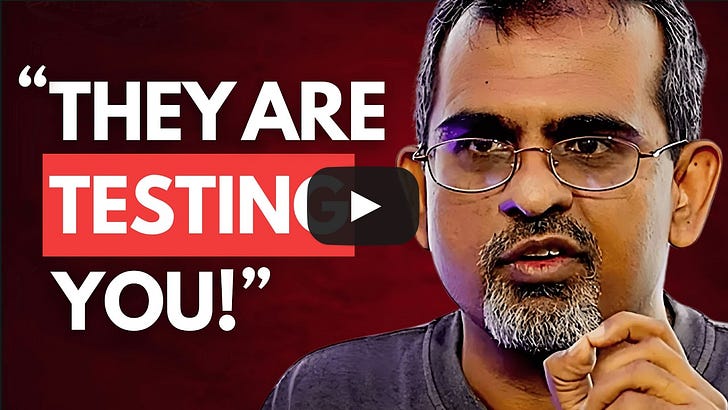 Jesse makes documentaries exploring consciousness, UAPs, and the nature of reality - his show, American Alchemy, is my only true must-watch. Riz is an MIT-trained scientist and game developer who theorizes that we live in a simulated multiverse. There’s this 34 second clip from the video that I want you to watch: https://youtube.com/clip/UgkxZ63pf33a-Zb2rxxCzcgUen1X6x6lAooB?si=yRnF4Qpgb6M7LqR4 Simulacra. Philip K. Dick. Glitch in the Matrix. Keep those in mind. You should watch the entire episode, and the full American Alchemy catalog, and Philip K. Dick’s 1977 talk at the Sci Fi Convention in Metz, France, but I need to leave all of that aside for now to tell you what happened next. I finished watching the episode. I went upstairs to brush my teeth. I started walking back down the stairs. Our stairs face a built-in bookshelf, and on the 4th step from the bottom, I stopped and looked at it. Half jokingly, in my head, I asked, “OK, Simulators, tell me what I should read.” Half jokingly, but I’d add, half earnestly. I was alone late at night; something was in the air. I looked briefly at the middle shelf, then my eyes went up to the top left, where there was a group of old books I’d picked up on the street a year or so ago. Right in the middle of that group was a book that I forgot I even owned, that I actually didn’t even remember existed: Simulacra. Philip K. Dick. It sure felt like a glitch in the Matrix. Look, I am not an unbiased or skeptical observer. I was spending my Friday night watching American Alchemy. When I was in middle school, my AOL screen name was XFILEDOUT. You read Not Boring. You know. I want to believe. I’m sure a qualified skeptic could explain my experience away, so I’ll try to do it for them. What was it: coincidence or synchronicity?
A coincidence is: "Huh, what are the odds?" A synchronicity is: "Hmm, what does this mean?" To be sure, any individual synchronicity walks a thin line with Baader-Meinhof: maybe I noticed Philip K. Dick’s The Simulacra because I had just watched a video on Philip K. Dick and Simulacra. I buy that explanation. Although… it is certainly strange that, of all the Philip K. Dick (PKD) books, I happened to own that one. While there are no reliable sales numbers to rank his books, I couldn’t find The Simulacra in the top five, or even top 10, of any internet list of best Philip K. Dick books. Neither ChatGPT or Claude included it in their lists, either. That said, however unlikely, it’s certainly possible it was just a coincidence. The thing about synchronicities, though, is that they come in clusters. Over the next three weeks, I had two more synchronicities, and I was able to read Puja’s mind. To be fair, I guessed a number between 1-10 right twice in a row. That’s 1% odds. I didn’t even try a third time because I didn’t want to mess it up. This isn’t a superpower. But I did kind of just see the numbers in my head when she asked. Whatever, again… on their own, each of these things are nothing but fun coincidences. Cumulatively, they make an interesting case for something. I want to tell you about those synchronicities, but for you to understand them, we need to hit The Telepathy Tapes. The Telepathy TapesAbout a week after the PKD Synchronicity, probably because I’d been spending time on the UFO/consciousness part of twitter, the algorithm served me this tweet: After the PKD Synchronicity, I was a little more open, and I had to move the car from one side of the street to another anyway, which meant driving around the block to find an open spot, which meant that I had a few minutes to listen to something. So I threw on The Telepathy Tapes.
I listened to half of the first episode that night. The next day, I listened to the entire rest of the series in one sitting. As I listened, I felt the magic seep back into my world. I want you to listen to the podcast, so if you really don’t want any spoilers, stop here, listen, and come back in a day or two once you’ve devoured the whole series. After the buffer, I’ll try to give just enough that you know what I’m talking about without spoiling it. OK. Welcome to the rest of the journey. The Telepathy Tapes is a documentary podcast by Ky Dickens about non-verbal autistic kids. It starts as a podcast about those kids’ ability to communicate telepathically with their parents. Then with each other. Then, it’s about a range of special abilities that the kids have beyond telepathy. It’s about the scientific establishment’s unwillingness to take their abilities seriously because they don’t fit within the materialist paradigm: the worldview that everything in existence can be explained solely by physical matter, measurable phenomena, and the laws of science (which, in turn, determines what kinds of studies get funded and published). And it’s about the existence of God. Again, I want you to listen and I don’t want to spoil it. But maybe there are a few things I can say without ruining it:
The experiences they claim to have mirror the Perennial Philosophy, and perhaps they are able to access them because, as Huxley would say, their condition makes them “loving, pure in heart, and poor in spirit.” Why should this be so? I do not know. To show you what I mean, I’m going to share one quote with you, because it’s central to my case but not central enough to the podcast to spoil it for you. Asher’s Information FieldIn Episode 9, the one that got me, one of the non-speakers, Asher, talks ( through his teacher, Jess) about his visits to the Realms: Ky: Asher says that he visits a place called the Realms to access information about any topic. And he talked about a time when his former teacher, Jess, asked him about reincarnation. And he said: Asher (via Jess): Well, reincarnation, definitely, yes. But he said it isn't past lives because they're all happening at once, and we're all having all of our lives all of the time, but we're just not aware of that as 3D people. But they're all going on at once, and they interact with each other. So if something happens in this lifetime and you suddenly get a eureka moment and you find something out that's wonderful and amazing that you hadn't known before, that will actually have repercussions in other lives because they're all interconnected. It's all parts of our soul exploring consciousness in different ways, and we're basically building up huge amounts of information. Every new thought we have, every new idea we have is new information. And that way, we're expanding the cosmos because each new piece of information that we come up with then goes into this library of his and becomes available for everybody else. But we have to get this knowledge through direct experience in 3D life. I got goosebumps a number of times listening to the series. When I heard that, I shivered. It rhymed with so much. First, it really sounds like AI model training on a cosmic scale. Humans generate new knowledge, which the AI trains on. Synthetic data doesn’t seem to be working. We have to get this knowledge through direct experience in 3D life. That’s nuts, right? A non-speaking autistic young man described a mechanism for the expansion of the cosmos that almost exactly mirrors the mechanism for the expansion of artificial intelligence. Second, that’s just a beautifully expansive way to look at the human experience, isn’t it? Every new idea, every new direct experience we have expands the cosmos. Each of us is a different way for consciousness to explore itself and expand. It makes life intrinsically meaningful, no matter how you live it, while also making life more meaningful the more fully you live it – the more ideas and experiences and emotions you have. It even gives a direction to progress and technology: the more people who can live and have more and richer experiences, the better. Growth is good. More energy is good. Expansion among the stars is good. Medicine is good. Whatever increases the number and diversity of lives is good. Stop it right here, just assume that Asher is making this all up: it’s still a deeply impressive and profound insight. But I don’t think he’s making it up, because third: the connections. I’ve been on a side quest for nearly two years to try to better understand reality a little better, through sci-fi like Hyperion Cantos, religious philosophy like Pierre Teilhard de Chardin’s The Phenomenon of Man, a little Iain McGilchrist, Aldous Huxley’s The Perennial Philosophy, Paramahansa Yogananda’s Autobiography of a Yogi, Donald Hoffman’s work on consciousness, and a lot of American Alchemy, among other things. Asher, a non-speaking young man in England, explained the cosmos in much the same way all of those thinkers, writers, priests, sages, and even physicists throughout history have, in his own unique and novel way. Cosmic ConnectionsThat Asher quote was the moment when my belief bit flipped from 0 to 1. It all just clicked. It all made sense. It all lined up eerily well. God is real. I want to give you the sense of how and why it clicked so instantaneously, after two years of reading and exploring these ideas. Hearing a non-speaker, someone society had basically assumed was not smart, describe the ideas I’d seen in so many disparate sources based on his own experience was like finding detailed quantum mechanics equations carved into ancient Egyptian hieroglyphs or a sealed cave with perfectly accurate maps of the modern world inside or a remote tribe that had independently discovered the Transformer architecture. When completely separate paths lead to the same profound truth, you have to consider that they're both discovering something real. So what are those ideas? I’ll try to make some of the connections. Asher describes the universal consciousness as a field of information that we feed through our lived experience and knowledge, and describes our lives as our souls exploring this consciousness. That sounded a lot like the place where I started this journey into consciousness almost two years ago. Specifically, Dan Simmons’ Hyperion Cantos. More specifically, the fourth and final book in the series: The Rise of Endymion, which he wrote in 1997 and I read early in 2023. Near the end of the book, Aenea, the protagonist prophetess, reveals the secret of the Void Which Binds, the underlying fabric of reality that connects all points in space time: it “is a minded thing–it comes from minded things,” is structured from thought and feeling, “an artifact of the universe’s consciousness of itself,” bound by love. A lot of readers hated that explanation. Amor Ex Machina. Love isn’t real. You can’t measure it. It’s an easy, woo-woo way to resolve a bunch of tensions without real, physical, materialist explanations. I… loved it. It felt true. But it was sci-fi; a good starting point, not an answer. Through Hyperion, I also discovered Pierre Teilhard de Chardin. One of the characters in the first book, the Priest, mentions de Chardin. It took me a while to realize that he was real and that much of the world Simmons had created was based on de Chardin’s concept of the Noosphere. If the Catholic Church were any good, I would have known about de Chardin. He’s the kind of person who might have kept me Catholic in the first place. He was a French Jesuit priest – my parents and siblings all went to Jesuit colleges – a scientist, paleontologist, theologian, philosopher, teacher, and author. A religious man who combined science and mysticism. In his 1955 masterwork, The Phenomenon of Man, de Chardin wrote:
His contribution to this effort was the aforementioned Noosphere: a planetary layer of human thought and consciousness that would eventually converge in what he called the Omega Point, where humanity achieves complete spiritual unity with the divine. Through this lens, human consciousness and love aren't byproducts of evolution but its driving forces, moving everything toward greater unity and complexity. The Noosphere - built from human knowledge and to which humans have access – is almost exactly as Asher described it. And as you know because we write it all the time, in The Beginning of Infinity, physicist David Deutsch defines The Principle of Optimism: “All evils are caused by insufficient knowledge.” OK, this is one of those things where, if you were a skeptic, you would think I was making this all up. I promise I’m giving it to you as it’s actually happening. I remembered that Diana Pasulka, a religious scholar and author who I discovered through American Alchemy, had mentioned the Noosphere in her book, Encounters: Experience with Nonhuman Intelligences. So I just went and searched for it on my Kindle, and this quote from one of the book’s subjects, Simone, is the first mention that came up: “The expansion of knowledge is the fate of the universe. Humans have been the possessor of knowledge and only when the growth of knowledge stops does expansion cease.” That’s the same thing Asher said. OK, I know you’re not going to believe me, but now I just re-opened The Phenomenon of Man to find a quote, and I found this at the end of the Introduction: “We, mankind, contain possibilities of the earth’s immense future, and can realise more and more of them on the condition that we increase our knowledge and our love. [author’s note: are you kidding me!?] That, it seems to me, is the distillation of The Phenomenon of Man.” The Introduction wasn’t written by de Chardin himself. It was written, in London in December 1958, by Julian Huxley, the brother of Aldous Huxley, who I quoted above before re-opening The Phenomenon of Man and re-discovering that a Huxley wrote the introduction. [author’s note: are you fucking kidding me!?] Let’s keep going, back to Asher’s assertion that “each new piece of information that we come up with then goes into this library of his and becomes available for everybody else.” If, for whatever reason, you watched the whole American Alchemy video I linked earlier, this might sound familiar. Start here, at 23:02, and watch until about 26:40 when Wim Hof says “Kings”:  Here’s the most relevant quote, although the whole clip is fascinating:
Morphic Resonance is almost exactly what Asher said! Are you KIDDING me?! The universe that Asher describes – a network of souls exploring consciousness and building it up through the information they generate – also mirrors the cutting-edge work that UC Irvine’s Donald Hoffman is doing to mathematically derive the universe from a network of conscious agents (like humans). This consciousness, Hoffman argues, is more fundamental than matter, more fundamental than spacetime. In fact, he is working to prove that matter and spacetime emerge from consciousness. “Every new idea we have is new information,” Asher says, “And that way, we're expanding the cosmos…” Look, I know that none of these individually would hold up in court. I know that I look like Charlie in that It’s Always Sunny Meme. But this is about 5% of the connections – Asher is just one minor character in the series, and even for his experience, I’m only making a fraction of the connections I have in my notes. Another non-speaker, Houston, says, “The entire reason for being on earth is to love. Love is god and god is love. Nothing else matters but love.” That is profound for any teenager, let alone one whose mother had practically given up on him because she couldn’t figure out how to communicate with him. That’s Rumi: “The astrolabe of the mysteries of God is love.” That’s Jesus, who said even to “love your enemies.” All to say, intellectually, the cumulative case is compelling to me. What drove it all home, though, really made me feel that there was magic in the world, were the synchronicities. The City, Its Uncertain Walls, and the Autobiography of a YogiThe philosopher William James coined the “noetic quality” of mystical experiences: a sense of encountering truths that, while difficult to verify through traditional scientific methods, feel profoundly real and meaningful. There’s knowing something intellectually – like connecting the non-speakers’ experiences to religious texts – and then there’s knowing experientially, noetically. That’s what the synchronicities did for me. Recall the first synchronicity: I asked for a book, I found Philip K. Dick’s The Simulacra. The second synchronicity is a small one. I’m just going to mention it briefly, because it’s so subtle I didn’t even really realize it until later, when I started writing this. Haruki Murakami is my favorite novelist. Read into that what you will: I like my reality mixed with a little magic. For years, my twitter profile banner has been Haruki Murakami Bingo. Back in September, I pre-ordered his newest book, The City and Its Uncertain Walls. No idea what it was about, but Haruki Murakami is my Jesse Michels of books: he drops it, I’ll consume it. I forgot about it, as one forgets about pre-orders, until it showed up on my Kindle on November 26th. If that date looks familiar, it’s because it’s the same date as this tweet. That, however, is a coincidence, not a synchronicity. I dropped what I’d been reading and started The City. **MINOR SPOILER ALERT BEGIN** Of the like five or six actual characters in the book, one is a dead person who can communicate with a few living people as if he’s still alive, and another is – while not diagnosed in the book – a minimally verbal kid who is at least on the spectrum and comes to communicate telepathically with the protagonist IN ORDER TO WORK TOGETHER TO READ HUMAN DREAMS IN A MYSTERIOUS OTHERWORLDLY LIBRARY. **MINOR SPOILER ALERT OVER** Actually, that was less small than I thought. That was pretty on the nose. Then the third synchronicity. After watching the Riz / Jesse conversation and then listening to The Telepathy Tapes, I wanted to go as deep as I could on this. I downloaded like seven books, and read a couple. I was about 10% into Riz’s book, The Simulated Multiverse, when I got into bed and had a thought: read Autobiography of a Yogi. I’d started reading it a few years ago, then stopped, then started over earlier this year while we were in Barcelona, then stopped. I wasn’t sure whether to take some of the acts Paramahansa Yogananda described literally or metaphorically or what. So I stopped and read something else. When I opened it back up in my Kindle, this was the page I’d left off eight months ago: Certainly, in a book about a Yogi, it’s not so bizarre to find a page like this. But in all 300 pages, this is the one that is most aligned with The Telepathy Tapes: human broadcasting stations, “transferred his thoughts effectively to another person,” “antenna of intuition,” “all thoughts vibrate eternally in the cosmos,” “detect the thoughts of any mind, living or dead.” Come on! Like de Chardin, Paramahansa Yogananda even talks about communications technology as an intimation that man is an all-pervading spirit! Come ON! The one line on the page that I didn’t highlight, the last one which spills over to the next page, I didn’t think was as relevant until I started writing this piece. Now that I’m re-reading it, here it is:
I giggled when I read that. Nearly a century later, and we’re still saying the same thing. The Return of MagicSo that’s my experience. Some synchronicities, a podcast, and a lot of connections. An abundance of arguments, none of which would hold much water individually, but all of which have combined to make me believe in something bigger and more magical. Less than a month in, I am obviously at the beginning of that infinite journey, but it’s fun and very, very different from my experience growing up Catholic. I’d almost describe it as looking for magic all around. Beyond myself, though, I get the sense that we’re at the beginning of a societal awakening, a Return of Magic. This year, 2024, set the stage. It’s the year the Vibe Shifted. In his In his year-defining essay, Vibe Shift, Santiago Pliego wrote:
The Vibe Shift, in other words, is the return to believing your own experience and intuition instead of delegating truth to the experts. I think looking back, we’ll see that this year was the beginning of the Downfall of Dogma, or what Iain McGilchrist, whose gold-plated academic credentials include Oxford and Johns Hopkins, would call “Left-Brained Thinking.” In a 2023 interview with UnHerd, Left-Brain Thinking Will Destroy Civilisation, he said:
A couple of years ago, The Telepathy Tapes may not have broken through to the mainstream. It might have been killed by experts like Jonathan Jarry at the deliciously pre-2024 Office for Science and Society at McGill University – “Separating Sense from Nonsense” – who wrote a snarky takedown titled, The Telepathy Tapes Prove That We All Want to Believe. Luckily, in 2024, experts no longer have that power to kill ideas with the stroke of their pen. The Telepathy Tapes is now the #5 podcast on Spotify. Part of the reason that The Telepathy Tapes is more resistant to the Jarry’s of the world is that, by growing an audience, they can go direct to fund the research they will need to do to validate the claims in the series. You can donate directly on thetelepathytapes.com to fund a full documentary and formal, tightly controlled telepathy tests at UVA. I just did. Science, not scientism, will be the arbiter. More generally, I am very optimistic about research into non-physical and esoteric phenomena. At the turn of the 20th Century, Nikola Tesla, maybe the all-time great at manipulating the physical world, predicted: “The day science begins to study non-physical phenomena, it will make more progress in one decade than in all the previous centuries of its existence.” It seems almost cosmically obvious that Tesla will be proven right, and that discoveries in both consciousness and high-energy physics will spit off new branches on the tech tree. In yet another awesome American Alchemy interview, Danny Sheehan, the Harvard-educated lawyer who has been a public defender on about half the big conspiracy cases and who claims to have viewed classified documents related to UFOs while working as general counsel to the Jesuit (of course haha) Social Ministries Office, said that the aliens 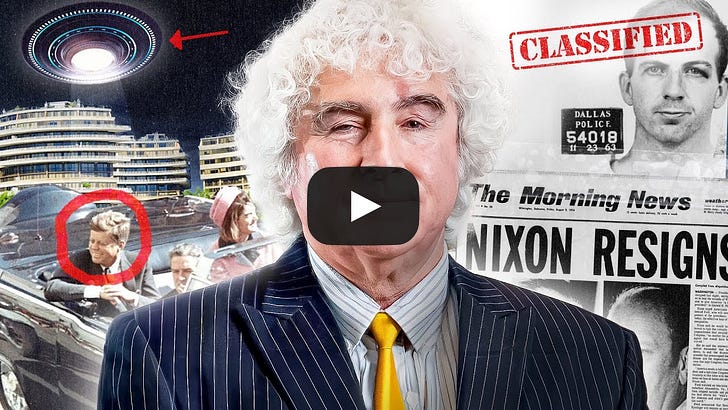 “They [non-human intelligences] use it [consciousness] to drive their craft, to navigate, they telepathically communicate. This whole thing, the level of consciousness we’re at, is really important to them.” I would bet that our understanding and ability to harness consciousness will send humanity down a new, even more interesting path. In either case – whether understanding consciousness leads to new capabilities or not – the idea that we are all part of one consciousness, put here to have new ideas and experiences, gives a richness to all of our endeavours. For one thing, it makes the idea that AI is going to grow a consciousness and kill us all seem very silly. That’s clearly not how this ends, and the idea that it could is proof of late stage rationalism. What is the purpose of technology? It is to enable more people to have more ideas and experiences in order to expand the universe. Given that, it is a cosmic imperative to build, to create, to travel beyond the earth and spread human consciousness throughout the universe so that the Universal Consciousness can better know itself. We have an imperative to expand and to live fully, to do new things and have new ideas, to bring new people into the world and give them a rich, magical universe to explore. The Return of Magic isn’t a rejection of reason and science. Reason and science have gotten us here, and we need science to expand. But we must simultaneously rediscover the wonder and intuition that we’ve forgotten, so that we might see the universe as alive, connected, and full of possibilities. You can start small, though: listen to The Telepathy Tapes and keep your eyes open for the synchronicities. That’s all for today, and the last essay of 2024. Thanks for coming on this journey with us! It’s been a hell of a year, and I’m energized to make 2025 even stronger. For now, we’ll be back in your inbox tomorrow with a Weekly Dose. Thanks for reading, Packy |
Older messages
Weekly Dose of Optimism #124
Thursday, December 19, 2024
Willow, Shipmas, Gemini 2.0, Trump Permitting Reform, BAMs ͏ ͏ ͏ ͏ ͏ ͏ ͏ ͏ ͏ ͏ ͏ ͏ ͏ ͏ ͏ ͏ ͏ ͏ ͏ ͏ ͏ ͏ ͏ ͏ ͏ ͏ ͏ ͏ ͏ ͏ ͏ ͏ ͏ ͏ ͏ ͏ ͏ ͏ ͏ ͏ ͏ ͏ ͏ ͏ ͏ ͏ ͏ ͏ ͏ ͏ ͏ ͏ ͏ ͏ ͏ ͏ ͏ ͏ ͏ ͏ ͏ ͏ ͏ ͏ ͏ ͏ ͏ ͏ ͏ ͏ ͏
Weekly Dose of Optimism #123
Tuesday, December 10, 2024
Brain Mapping, Walk Switch, Anduril x OpenAI, GenCast, Nuclear Meta, Isaacman ͏ ͏ ͏ ͏ ͏ ͏ ͏ ͏ ͏ ͏ ͏ ͏ ͏ ͏ ͏ ͏ ͏ ͏ ͏ ͏ ͏ ͏ ͏ ͏ ͏ ͏ ͏ ͏ ͏ ͏ ͏ ͏ ͏ ͏ ͏ ͏ ͏ ͏ ͏ ͏ ͏ ͏ ͏ ͏ ͏ ͏ ͏ ͏ ͏ ͏ ͏ ͏ ͏ ͏ ͏ ͏ ͏ ͏ ͏ ͏ ͏ ͏
Introducing Boring News
Tuesday, December 3, 2024
Our new daily news show based on Polymarket, built with AI ͏ ͏ ͏ ͏ ͏ ͏ ͏ ͏ ͏ ͏ ͏ ͏ ͏ ͏ ͏ ͏ ͏ ͏ ͏ ͏ ͏ ͏ ͏ ͏ ͏ ͏ ͏ ͏ ͏ ͏ ͏ ͏ ͏ ͏ ͏ ͏ ͏ ͏ ͏ ͏ ͏ ͏ ͏ ͏ ͏ ͏ ͏ ͏ ͏ ͏ ͏ ͏ ͏ ͏ ͏ ͏ ͏ ͏ ͏ ͏ ͏ ͏ ͏ ͏ ͏ ͏ ͏ ͏ ͏ ͏ ͏
Weekly Dose of Optimism #122
Friday, November 29, 2024
Quantum Computer, PsiQuantum, Nabla Bio, MIT Tuition, DOGE, AirPods ͏ ͏ ͏ ͏ ͏ ͏ ͏ ͏ ͏ ͏ ͏ ͏ ͏ ͏ ͏ ͏ ͏ ͏ ͏ ͏ ͏ ͏ ͏ ͏ ͏ ͏ ͏ ͏ ͏ ͏ ͏ ͏ ͏ ͏ ͏ ͏ ͏ ͏ ͏ ͏ ͏ ͏ ͏ ͏ ͏ ͏ ͏ ͏ ͏ ͏ ͏ ͏ ͏ ͏ ͏ ͏ ͏ ͏ ͏ ͏ ͏ ͏ ͏ ͏ ͏ ͏ ͏
Rox
Tuesday, November 26, 2024
How to Manufacture Path Dependence in Applied AI ͏ ͏ ͏ ͏ ͏ ͏ ͏ ͏ ͏ ͏ ͏ ͏ ͏ ͏ ͏ ͏ ͏ ͏ ͏ ͏ ͏ ͏ ͏ ͏ ͏ ͏ ͏ ͏ ͏ ͏ ͏ ͏ ͏ ͏ ͏ ͏ ͏ ͏ ͏ ͏ ͏ ͏ ͏ ͏ ͏ ͏ ͏ ͏ ͏ ͏ ͏ ͏ ͏ ͏ ͏ ͏ ͏ ͏ ͏ ͏ ͏ ͏ ͏ ͏ ͏ ͏ ͏ ͏ ͏ ͏ ͏ ͏ ͏ ͏ ͏ ͏
You Might Also Like
Are secondaries a liquidity mirage?
Saturday, March 29, 2025
Also: The impact of China's $138B high-tech fund; How is PE navigating 2025?; Real estate returns are improving. but fundraising has been harder... Read online | Don't want to receive these
'Lean Into Your Heart: Let Your Passion Drive You'
Saturday, March 29, 2025
We spoke with award-winning producer and director Mike Tollin about his Philly roots, the leadership shift between producing and directing, the values that guide his life, and what truly makes for
2.5x more sales without acquiring new users
Saturday, March 29, 2025
Launching a product? I'm helping startups build better products and reach product-market fit. To do that, we've built ProductMix and you should use it: https://rockethub.com/deal/productmix
Winners and Losers?
Friday, March 28, 2025
The dust has (mostly) settled. Google's March 2025 Core Update is officially complete ͏ ͏ ͏ ͏ ͏ ͏ ͏ ͏ ͏ ͏ ͏ ͏ ͏ ͏ ͏ ͏ ͏ ͏ ͏ ͏ ͏ ͏ ͏ ͏ ͏ ͏ ͏ ͏ ͏ ͏ ͏ ͏ ͏ ͏ ͏ ͏ ͏ ͏ ͏ ͏ ͏ ͏ ͏ ͏ ͏ ͏ ͏ ͏ ͏ ͏ ͏ ͏ ͏ ͏ ͏ ͏
Sam Altman Says Your Silly Image Editing Is Melting Its GPUs
Friday, March 28, 2025
You're an Amazon whiz... but maybe not an email whiz. Omnisend makes setting up email for your brand as easy as click, drag, and drop. Make email marketing easy. Hey Reader, First, our prayers and
A Tale of Two Crypto Markets
Friday, March 28, 2025
Calmer Seas Are Ahead
Google's AI - Your "travel agent"
Friday, March 28, 2025
It's booking vacations and paying your bills.
Disruptive Marketing Tactics, Instagram Measurement, Meta Ads Branding Controls, and More
Friday, March 28, 2025
Today's Guide to the Marketing Jungle from Social Media Examiner... presented by social-media-marketing-world-logo The weekend is almost here, Reader! Before you unplug, here's one last round
Q&A: How startups should sell AI
Friday, March 28, 2025
VC secondaries home in on trendy startups; real estate funds hit 22 months to close; taking PE's pulse Read online | Don't want to receive these emails? Manage your subscription. Log in The
Influence Weekly #382 - This Is What A $300 Million TikTok Strategy Looks Like
Friday, March 28, 2025
E-Commerce Veteran Shares Key Insights After Spending $10M On Influencer Marketing Campaigns

